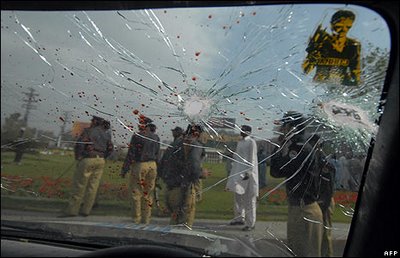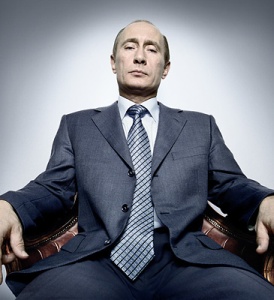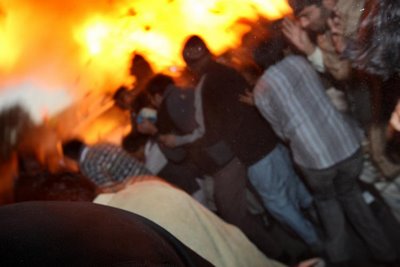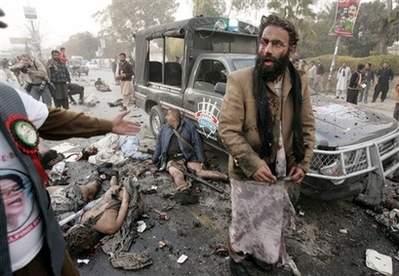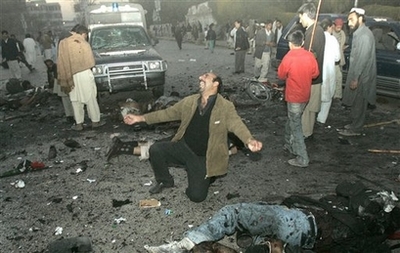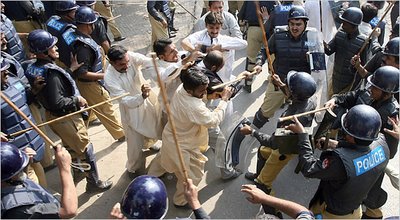The unreality of Afghanistan.
The imperial hangover which this country suffers from is reasonable enough, but it still makes you wonder what planet some people are living on when the Mail incredulously asks on its front page "[W]hat kind of war is this?" A fairly standard war, really, considering you're battling against non-state backed fighters. Anyone would think that infiltrating organisations, spying on others and even occasionally carrying out the type of operation as took place on Tuesday was a unique and untested innovation. We seem to forget that our enemy probably feels much the same when a unmanned, unsighted drone suddenly unleashes a Hellfire missile and turns what was the centre of a village into a scene of utter carnage. We like to imagine that we're the ones with the moral authority, that we're not the ones that use children as either suicide bombers or distractions, even while we without a second thought call in airstrikes that are not exactly discriminate in those that they kill and maim. In terms of similar attacks, this one wasn't even exactly highly sophisticated; it was an opportunity which was taken when it arrived. Compared to say, the suicide bomb attack inside the Iraqi parliament, or the attack carried out by Ansar al-Sunnah in which they got inside an American military base in Mosul, killing 14 soldiers, it's not even in the same league.
The problem the attack poses though is obvious: when our policy is to train the Afghan army and police and then get out, or at least that's what it's meant to be, that this officer was apparently not a new recruit and had been in the police for three years raises the nightmare that there may be many more "cells" where we have in fact trained those will then turn on us when the chance arises. This isn't exactly new either though: the Iraqi police and army were and probably still are riddled with those with their own distinct agendas, and that was in a country where there are only two major sects in conflict with each other. In Afghanistan there are at least five different ethnic groups, speaking at least six languages, and where tribal rivalry and personal fiefdoms are far, far older than the modern state itself. Like in Iraq, where a job in the police or the reconstituted army were around the only ones going, that there is a such a low threshold for potential recruits to pass to become officers creates problems in itself. The Afghan army and police are notorious for their unreliability, and I don't think there's been a film yet shot of either Americans or British troops working with them where spliffs haven't been passed around at some point by their companions. The Taliban of course, despite their supposed purity, are probably much the same, especially those who are being paid rather than the true believers, but that doesn't make the situation any better.
Again, none of this would much matter if we had anything approaching another plan to put into place should everything go wrong as it seemingly is, but we don't. The closest thing either us or the Americans have to an advanced military strategy is to flood ever higher numbers of troops into the country. This has been vastly encouraged by the supposed success of the "surge" in Iraq, but that coincided with two much more important occurrences: firstly the setting up of the Awakening councils, when the insurgent groups outside of the hardline Salafists of the Islamic State of Iraq and Ansar al-Islam turned on their former allies, and secondly the ceasefires declared by the Mahdi army, which vastly decreased the attacks by the Shia around Baghdad, as well as the sectarian killings. Despite attempts to encourage something similar to the former in Afghanistan, there's little sign of it happening. The increase in troops is also meant to go hand in hand with the strategy of "taking and holding", having previously only taken land held by the Taliban to then withdraw and let them take it again. This is all well and good, but it still leaves us at some point having to give that which we've taken back, with no guarantee whatsoever that the Taliban won't then come straight back. Training up the Afghan army and police is meant to stop just that, but there's still no real belief that they'll be able to hold their own when the time comes.
With there being no apparent alternative, you have to wonder if Kim Howells' intervention yesterday was meant to further cement the current policy as the only one in town. Only someone in the chair of the completely toothless Intelligence and Security Committee could think that the best way to spend the money saved by getting out of Afghanistan is to raise up the drawbridge here and in Howells' words introduce "more intrusive surveillance in certain communities", which has to be one of the most cowardly ways of calling for more spying on Muslims imaginable. Howells seems to be basing this on the false premise that getting out of Afghanistan would make the security situation here deteriorate, when if anything the opposite would be the case, as well as helping to ameloriate the attitudes which some within this country hold. Just to further flesh out his attitude that this whole mess isn't our fault but rather the Afghans' own, just like some blamed the Iraqis for not embracing the democracy we so kindly imposed down the barrel of a gun, he continues: "I assumed, wrongly, that a desire among ordinary Afghans for peace would prevail over the prospect of continued war and the spectre of being ruled by a tyrannical theocracy in one of the world's poorest and most backward countries." He seems to think that what they're currently experiencing is somehow better. Indeed, some would doubtless suggest, despite the Taliban's brutality, that at least during their short rule there was something approaching security, hardly the case now and hardly the case during the previous years.
We shouldn't pretend that getting out of Afghanistan immediately would either be easy or not have major, long lasting effects on our relationships both with the United States and NATO. It would however be better to consider it as a genuine option and to plan for it than to continue with the lunacy of our current position, knowing that it is untenable as a going concern. Our politicians however, with the exception of the Liberal Democrats, who finally seem to be coming round to the fact that this war is just as unwinnable and disastrous on all fronts as our adventure in Iraq was, seem to be far more prepared to continue lying to the public about al-Qaida and safe havens than admit that this simply cannot go on.
Labels: Afghanistan, foreign policy, insurgency, jihadists, Kim Howells, madness, musical terrorism, Pakistan, terror

